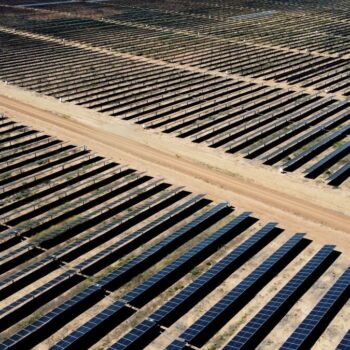After more than a decade of working on the political economy of climate politics and energy transitions, E3G is consolidating its work in this area with a new centre for the political economy of climate change. Building on our climate-focused political economy mapping methodology (PEMM) tool we will be working with partners to develop robust political economy analysis to understand country, sectoral and institutional contexts and build a new community of practice. This will boost our work with the climate community to build the political conditions to align climate commitments and real-world action. It will come together in an online knowledge platform, the Climate Transformation Hub, available to our partners and networks.
The decisive decade for climate action
Countries are broadly committed to climate action and net zero targets approach 90% of global GHG emissions. We know barriers to ambitious climate action are now primarily political and institutional. Yet no country currently has the political conditions for climate safety.
A third of the way through the decisive decade, the focus for climate action is shifting from targets to delivery. Climate action now means delivering whole-of-economy and whole-of-society transitions, “deep decarbonisation”. In emerging economies, power sector transformation is a high priority. National politics are highly sensitive to climate debates. Increasingly emissions occur in countries where civic space is more restricted. Interventions must be based on a solid understanding of political economy dynamics.
Politics is the problem – and politics is also the key
The transitions ahead will create winners and losers and will come up against challenges from vested interests, incumbents, and institutional inertia. We need to make good choices about how to bring people and business along.
Strategies and influencing underpinned by systematic country-level political economy analysis have a greater chance of success. A political economy lens can help create confidence and legitimacy around decisions. It can also manage the tensions and competing interests encountered as we aim for higher climate ambition. New diplomatic and real economy approaches will be necessary to develop the partnerships and influence to shift all countries towards decarbonisation.
Scaling political economy analysis, capability and partnership is essential
The climate community lacks solid, accessible political economy analysis, and the capability, tools and networks to develop and apply such analysis. Therefore, we urgently need to scale the capability of the climate community and connect analysis to enhance strategies.
E3G’s unique climate focused political economy mapping tool, the PEMM, sits at the heart of our approach. Developed and applied over 14 years in almost 30 countries, the PEMM allows us to conduct robust country and sectoral political economy analysis and identify opportunities for action. The PEMM has analysed country positions in the context of UNFCCC negotiations and at such key political moments as the G20 where climate is on the global stage.
Through the PEMM process, we find new insights, framings and opportunities for unlocking progress. For example, internationally the PEMM helped new entry points for action around sustainable cooling in five key countries. In the European context, E3G assessed the political economy context for heating transitions in Italy, Spain, Germany and Poland where energy security pressures are increasing attention on energy in buildings. Additionally, critical new partnerships and networks convene for more effective strategy building, like the Visegrad+ platform accelerating the pace of regional clean energy transformation.
E3G’s new centre for political economy of climate change works to build the political conditions for ambitious action
E3G is now beginning work with research partners to conduct climate-focused political economy analysis across key countries including Brazil, Indonesia, South Africa, and the US, amongst others, and in line with international climate priorities such as Just Energy Transition Partnerships (JETPS), the US Inflation Reduction Act, and upcoming G20 Presidencies.
We will bring research together in an online knowledge platform, the Climate Transformation Hub. We will build a community of practice to professionalise climate-focused political economy practice with dedicated capacity-building, training, resources and tools accessible to our high-trust network of users across civil society, government, the diplomatic community, philanthropy, and more.
Lastly, we will connect analysis to action and influence by providing a convening space for the climate community to collaborate and share knowledge and insights on strategies and entry points for action.
Visit the Climate Transformation Hub website to register for access to the online knowledge hub and explore partnership opportunities.


